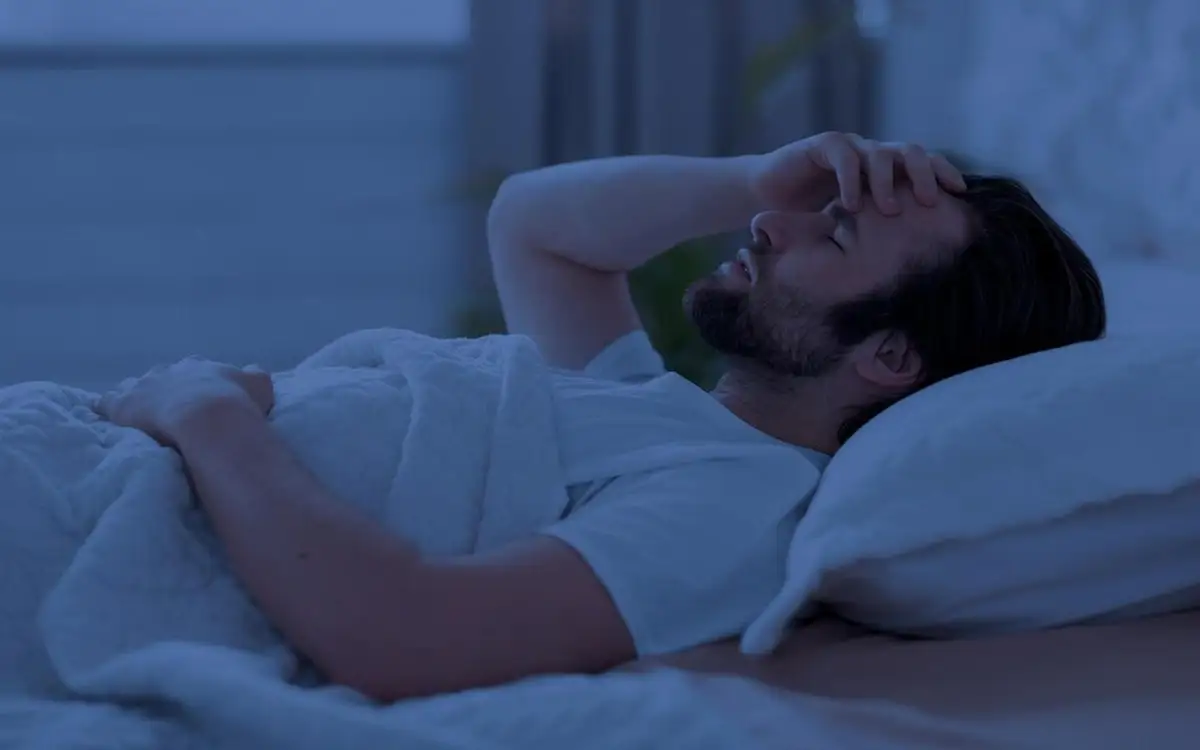People who have insomnia don’t just have a few nights where they can’t sleep; they have a constant problem that keeps them up at night, wondering why they can’t fall asleep. Insomnia at night, in particular, makes it hard to sleep and hurts your overall health by lowering your energy, mood, and ability to do daily tasks. Chronic insomnia, on the other hand, is usually caused by deeper psychological, physiological, or lifestyle problems. To get long-term relief, you need to get to the bottom of the problems instead of just masking the symptoms with short-term fixes.
The Science Of Sleep: How It Works
To understand what insomnia is, you need to know how sleep works. Every 90 minutes or so, the human sleep cycle goes back and forth between non-REM (rapid eye movement) sleep and REM sleep. REM sleep helps the mind recover and memories stick, while non-REM sleep helps the body heal.
Our circadian rhythm controls this cycle. The circadian rhythm is a natural, internal process that happens once every 24 hours and controls the sleep-wake cycle. The suprachiasmatic nucleus (SCN) in the brain sets the main clock, and light exposure changes it. As night falls, it tells the pineal gland to make melatonin, which is a hormone that makes you sleepy. On the other hand, the stress hormone cortisol naturally rises in the morning to help us wake up.
Things like bright lights, unpredictable schedules, or working shifts can throw off this rhythm. These changes can confuse the brain and make it take longer to fall asleep, which can lead to insomnia.
Common Psychological Causes Of Nighttime Insomnia
Mental health and getting enough sleep go hand in hand. One of the main causes of insomnia is mental stress, especially at night when there are fewer distractions and your thoughts are loud.
- When I go to bed, my anxious thoughts often start racing. It’s possible to stay awake past midnight because of worries about work, relationships, money, or the future.
- Even though depression is often linked to sleeping too much, it can also wake you up early in the morning or make it hard to fall asleep. Changes in neurotransmitter levels, such as serotonin and norepinephrine, which control sleep and mood, are one reason for this.
- The sympathetic nervous system, or “fight or flight” response, is set off by stress, whether it’s short-term or long-term. This makes it harder for the body to relax into sleep because it raises the heart rate and adrenaline levels.
Lifestyle And Behavioral Triggers
The things you do every day have a big effect on how well you sleep at night. Behaviours that don’t seem harmful can get in the way of your body’s natural sleep drive.
- Circadian rhythms get thrown off when sleep schedules aren’t stable, which makes it harder to fall asleep when you want to.
- Melatonin production is slowed down by screen time, especially an hour before bed. Phones, tablets, and TVS give off blue light that looks like daylight, which tricks the brain into staying awake.
- Both nicotine and caffeine are stimulants that stay in your body for a long time. Even a cup of coffee in the afternoon can make it hard to fall asleep at night.
- People often think that alcohol helps them sleep, but it actually wakes them up during the night and interrupts their REM sleep, making it hard to get a full night’s rest.
- When you eat a big meal before bed, you might get indigestion or acid reflux, which are both painful.
People often forget about these lifestyle factors, but changing them is an important first step toward getting healthy sleep again.
Medical And Physiological Factors
Insomnia can have roots in the body as well as the mind. Some medical conditions can make it hard to get a good night’s sleep.
- If you have arthritis, fibromyalgia, or an injury that causes constant pain, it can be impossible to find a comfortable way to sleep.
- Too many or too few hormones can cause night sweats, hot flashes, or an overactive mind, especially during menopause or when the thyroid isn’t working right.
- People with sleep apnea, a disorder in which breathing stops and starts during sleep, may wake up several times without realising it.
- Restless leg syndrome (RLS) makes the legs feel bad, which makes people want to move their legs all the time, especially at night.
- Medications like corticosteroids, antidepressants, and beta-blockers can also make it hard to sleep.
When To Seek Professional Help
Chronic insomnia may be present if insomnia lasts for more than three nights a week for a few months. In these situations, you should get professional help.
- Cognitive Behavioural Therapy for Insomnia (CBT-I) is thought to be the best way to treat insomnia. It focuses on the thoughts and actions that keep you from sleeping, and in the long run, it works better than medication.
- Sleep studies are used to find out if someone has sleep apnea or periodic limb movement disorder.
- If needed, a sleep specialist or mental health professional can help with personalised plans, managing medications, or therapy.
Conclusion
One thing rarely causes insomnia at night. It’s often caused by a lot of different psychological, behavioural, physiological, and environmental factors working together. The good news is that you can make real progress by figuring out and dealing with your specific triggers. Start by making small, deliberate changes, like improving your sleep hygiene, dealing with stress better, and taking a look at your environment. If you need to, get professional help. With the right approach, restful, restorative nights are within reach.



